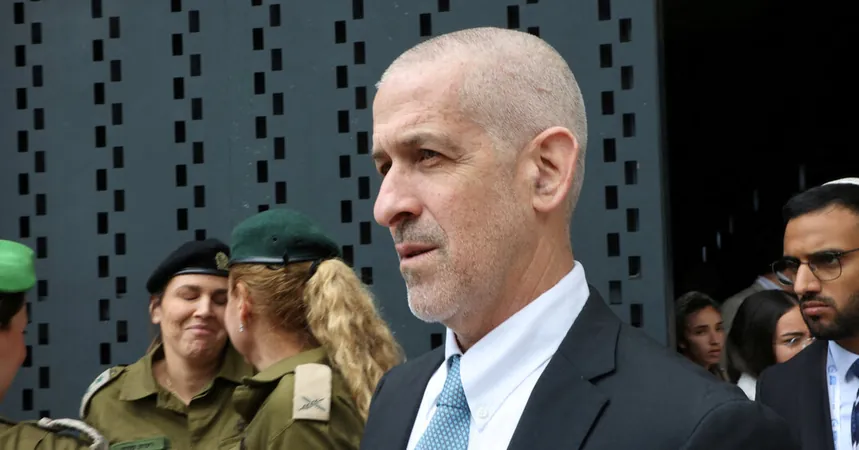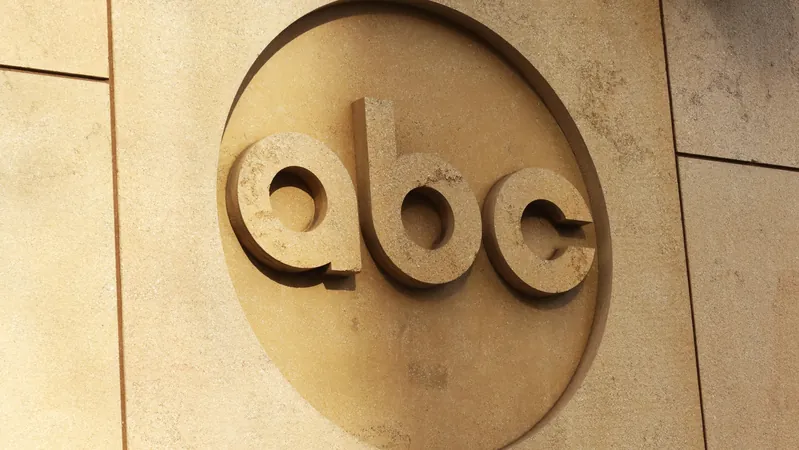
Netanyahu’s Powerful Move to Oust Spy Chief Paused by Israel's Supreme Court: What’s Next?
2025-04-08
Author: Kai
In a dramatic turn of events, Israel’s Supreme Court stepped in on Tuesday to halt Prime Minister Benjamin Netanyahu's controversial attempt to dismiss Ronen Bar, the chief of the Shin Bet, the country’s domestic intelligence agency. This decision has significant implications for Israel's political landscape, potentially tipping it toward a constitutional crisis.
The rift created by Netanyahu’s decision has sent shockwaves throughout the nation. Many government supporters view Bar as disloyal, while critics argue that his dismissal could set a dangerous precedent that threatens the independence of Israel’s democratic institutions. This case isn't just about one individual's job; it reflects a deeper ideological battle over the power dynamics between government leaders and intelligence agencies.
The hearings were tumultuous and gripping; proceedings were broadcast live and marred by disruptions from hecklers, including Tally Gotliv, a lawmaker from Netanyahu’s Likud party, who had to be forcibly removed from the courtroom. After nearly 11 hours of deliberation, the court issued an interim order that effectively freezes Bar's dismissal while giving Netanyahu’s government until April 20 to negotiate a “creative solution.”
The Backstory: Why Was Bar Fired?
Netanyahu removed Bar from his position after claiming a loss of trust. Critics see this as an attempt to consolidate power by dismissing a voice of dissent within Israel's security establishment. Bar, who orchestrated critical operations in Gaza and facilitated cease-fire negotiations with Hamas following the October 7, 2023, attack on Israel—which ignited ongoing hostilities—has been a key figure in national security.
His dismissal also followed an investigation into Netanyahu's aides concerning alleged security breaches related to their interactions with Qatar. Netanyahu vehemently reacted, accusing investigators of holding his advisers as “hostages,” further complicating the political climate.
Legal experts warn that if a compromise isn’t reached, the Supreme Court may well void Bar's dismissal, leaving Netanyahu at a crossroads: accept a significant defeat or openly defy the highest court in the land.
The Broader Implications: A Slide Toward Autocracy?
Critics of the Prime Minister are increasingly vocal about their concerns that his actions represent a trend toward autocratic governance. They argue that by targeting Bar, a respected and independent official, Netanyahu seeks tighter control over the Shin Bet—a pivotal agency responsible for national security. This has dire implications for Israel’s long-standing political system, where a balance between the executive and judiciary has historically been respected.
While the situation in the West Bank under military occupation continues to draw international scrutiny, Israel remains a functioning democracy with an independent judiciary and vibrant media. However, since returning to power in late 2022, Netanyahu has pursued policies aimed at weakening checks on executive power, including a contentious judicial overhaul proposal that sparked nationwide protests over fears it could jeopardize civil liberties.
In the Courtroom: Perspectives & Predictions
Chief Justice Isaac Amit underscored the extraordinary nature of the case, indicating the potential for a landmark ruling. The government's lawyer, Zion Amir, contended that the court should not intervene in what he describes as a decision made by a democratically elected body. On the opposing side, Eliad Shraga, representing advocacy groups challenging the dismissal, warned that Israel is perilously close to losing its liberal democratic status, stressing that only judicial intervention could avert this danger.
Initially, Netanyahu set April 10 as Bar's last working day, but the Supreme Court has since frozen the dismissal, permitting Netanyahu to consider potential candidates for Bar’s replacement while the case proceeds.
The stakes are high, and the outcome of this legal struggle could dictate Israel’s political trajectory and the relationship between governmental power and civil liberties for years to come. Will Netanyahu find a way to navigate this judicial challenge, or could this lead to a significant setback for his administration? Stay tuned for what could become a historic showdown in Israel's courts!



 Brasil (PT)
Brasil (PT)
 Canada (EN)
Canada (EN)
 Chile (ES)
Chile (ES)
 Česko (CS)
Česko (CS)
 대한민국 (KO)
대한민국 (KO)
 España (ES)
España (ES)
 France (FR)
France (FR)
 Hong Kong (EN)
Hong Kong (EN)
 Italia (IT)
Italia (IT)
 日本 (JA)
日本 (JA)
 Magyarország (HU)
Magyarország (HU)
 Norge (NO)
Norge (NO)
 Polska (PL)
Polska (PL)
 Schweiz (DE)
Schweiz (DE)
 Singapore (EN)
Singapore (EN)
 Sverige (SV)
Sverige (SV)
 Suomi (FI)
Suomi (FI)
 Türkiye (TR)
Türkiye (TR)
 الإمارات العربية المتحدة (AR)
الإمارات العربية المتحدة (AR)